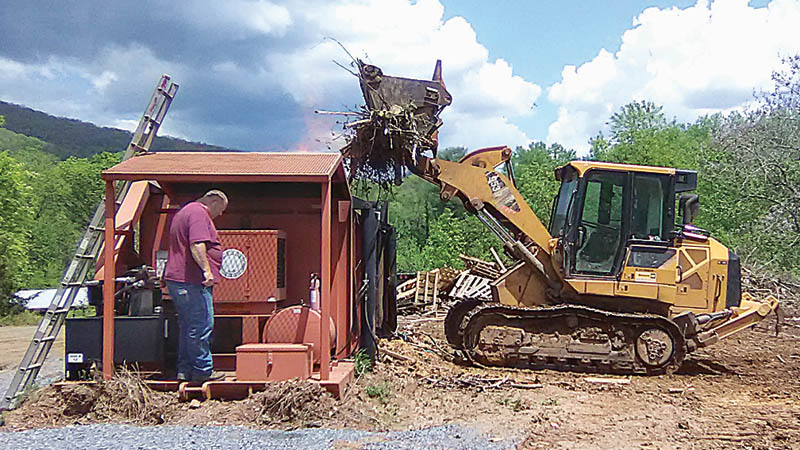Landfill now accepting brush with installation of incinerator
Published 7:59 am Wednesday, May 9, 2018


A new specialized piece of equipment is up and running at the Carter County Landfill giving residents a way to dispose of unwanted brush and wood while also helping to improve landfill operations.
Earlier this year, the Carter County Landfill Committee approved the purchase of an air curtain incinerator to dispose of brush and other clean wood debris. After a review process, the Tennessee Department of Environment and Conservation issued the county a permit to operate the incinerator.
Trending
The incinerator was installed at the landfill in mid-to-late April and is now fully operational according to Carter County Solid Waste Director Benny Lyons. The landfill began accepting brush again on May 1.
Since the installation, landfill employees have operated the incinerator for a total of around 35 hours, according to Lyons, and have already cleared out all of the brush that was stockpiled at the landfill.
The landfill previously accepted brush and wood items but had to stop after running out of room at the brush site. With the installation of the incinerator, Lyons said the landfill is able to once again provide that service for residents.
“Anything clean wood, non-painted, we can burn it,” Lyons said, adding that includes brush, pallets, two-by-fours, yard clippings, and tree trimmings. Items such as root balls and tree stumps can only be accepted if the dirt is removed from them, Lyons said.
In addition to allowing the landfill to once again provide a service to residents, Lyons said the incinerator is helping to improve landfill operations. Items such as pallets and wooden construction debris would have ended up in the landfill’s demolition section, which according to state officials is close to running out of space.
“This is saving space in the demolition landfill,” Lyons said of the incinerator.
Trending
Accepting brush again will also open up a revenue stream for the landfill which had been closed for some time. Lyons said operations such as commercial tree trimmers and even governmental agencies such as the Elizabethton Electric System or Carter County Highway Department can dispose of the brush they collect through the landfill now.
One of the important features of the incinerator, according to Lyons, is that should an emergency arise the unit has the capability of being transported. The incinerator is equipped with hydraulic legs which lift the unit up so it can be placed on a flatbed trailer to be moved. In the event of a major flood or another disaster, Lyons said he and his staff can take the incinerator to the affected area to help in the cleanup efforts.
Currently the landfill is accepting brush every day, but Lyons said that may change based on demand and operation of the incinerator. The unit can burn up to seven tons an hour, and Lyons estimates the landfill will only have to run it a few days each month.
Brush is only accepted at the main landfill. No brush can be disposed of at either of the county’s landfill convenience centers.







